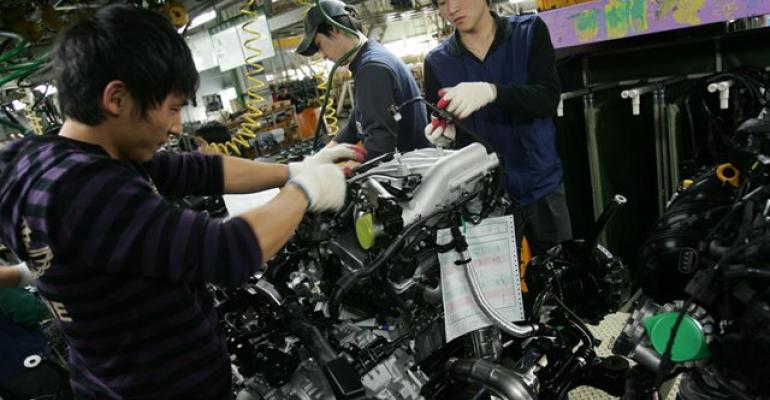Hyundai’s labor situation is up in the air after its union membership elects a former leader known for his contentious approach to negotiations.
Last month’s election of fiery unionist Park Yoo Ki, 50, a 27-year veteran employee of Hyundai, reportedly has given management quite a jolt. He succeeds Lee Kyung Hoon, a moderate leader ill-disposed to call strikes.
Park previously headed the Hyundai union in 2006-2007 when he called strikes that caused near-record losses for the company.
The change in leadership at the Hyundai Motor Branch of the Korean Metal Workers Union comes amid an unresolved contract with Hyundai. The union has been in discussions with management since June 2, but no talks have taken place since Sept. 22, a Hyundai source tells WardsAuto.
No new negotiating meeting is scheduled nor has the new union president asked for one, the source says
The union and management haven’t been close to reaching a tentative agreement. The union remains opposed to extending the retirement age from 58 to 60 and insists it be stretched out to age 65, the source says. The union team also has not agreed never to strike again.
During Park’s previous tenure, Hyundai lost 118,293 units of production during 13 strikes in 2006 actions, valued at 1.64 trillion won ($1.8 billion at then-existing currency conversion rates). It was the second-biggest production loss in the company’s history.
Park also was the driving force that converted the union into the Hyundai Motor Branch of the KMWU in 2006.
In January 2007, the union struck again, saying Hyundai had failed to pay negotiated bonuses. Hyundai protested that union workers had failed to meet productivity targets.
On the first day of work in 2007 the union scuffled with management outside headquarters of the Ulsan production complex, injuring Youn Yeo Chul, who was Hyundai’s president for domestic production.
By contrast, in the two years that Lee headed the union, he called only for partial strikes. Hyundai incurred strike losses of only about 16,000 vehicles in 2014 and 11,000 in 2015 under his moderate leadership.
Park also served in 2009-2011 as president of the KMWU labor umbrella organization, pressing for uniform wages and working conditions at Hyundai, Kia, GM Korea and Ssangyong. The result was a reduction in hours, introduction of a 2-shift work system with elimination of overnight shifts and night hours, inclusion of bonuses in basic pay calculations and other big advances for unionized workers that have significantly increased labor costs for the automakers.
The KMWU adamantly opposes one of Hyundai’s major pushes to change to a performance-based pay formula in 2016. Hyundai also wants to initiate a wage peak system, effective next year, that would reduce the amount senior employees are paid beginning a few years before their retirement.
The theory is that the workers could stay on the job longer, and a reduction in their top-tier wages would yield funds that could be used to hire younger workers who would begin at the lowest labor rates.
The Hyundai source says when an agreement is ironed out and ratified, the wage increase and other inclusions will apply retroactively to the date the existing agreement expired.
The big concern for Hyundai is that the production lines at its plants in Asan, Ulsan and Jeonju keep rolling, not just to maintain its market lead in Korea, but also to keep the pipeline filled with the export vehicles that are vital to the company on a global basis.





